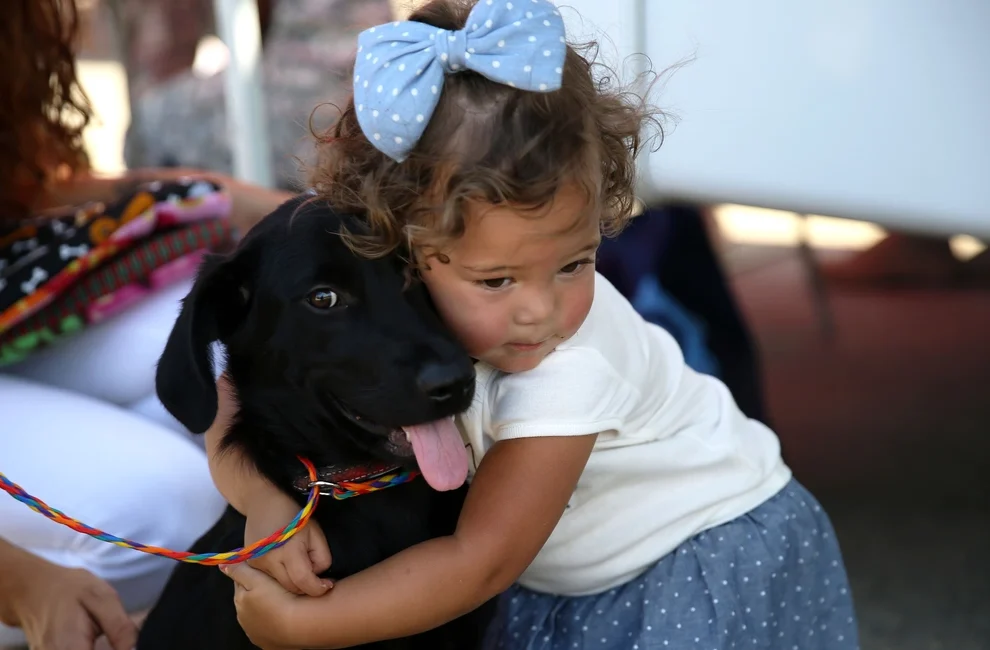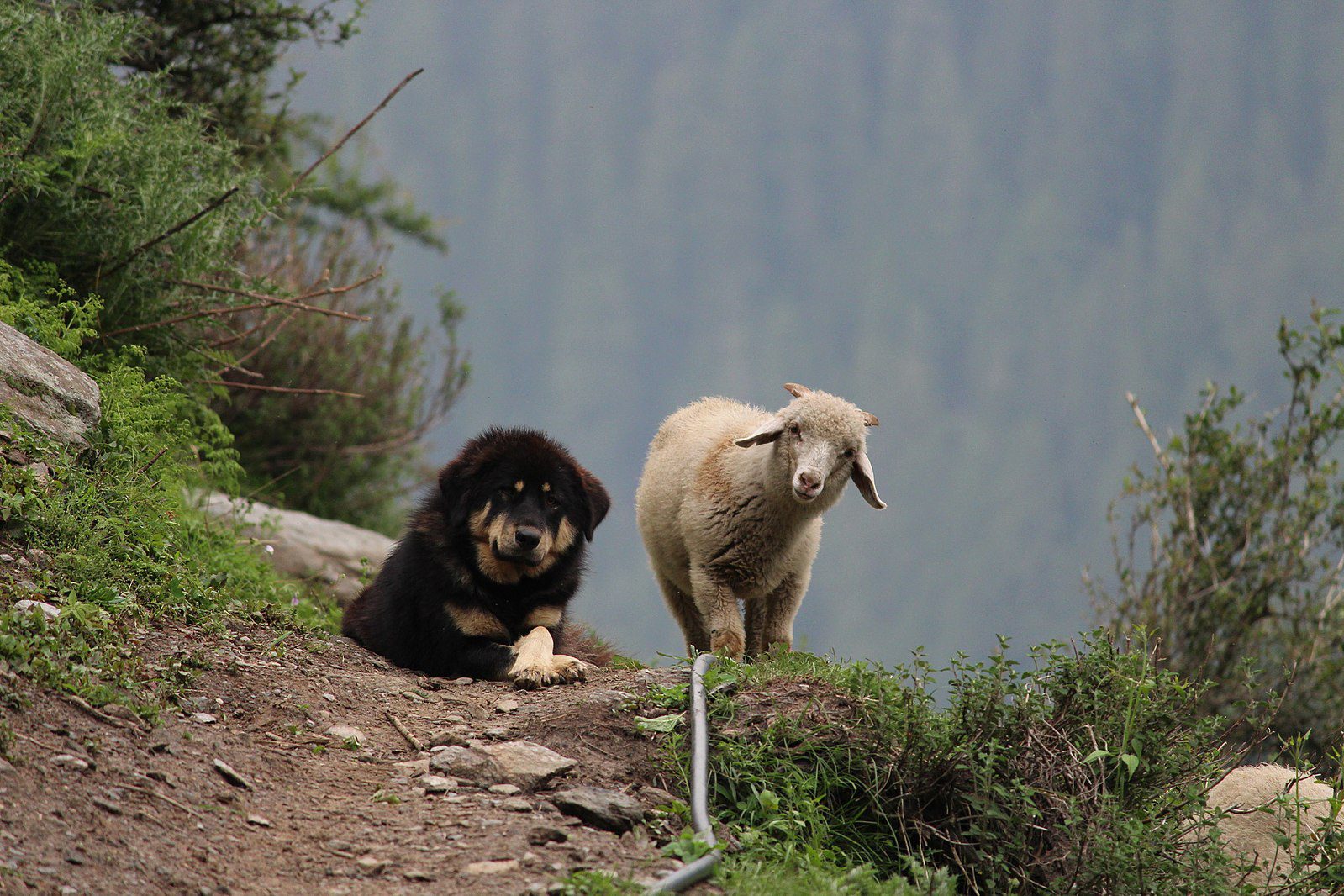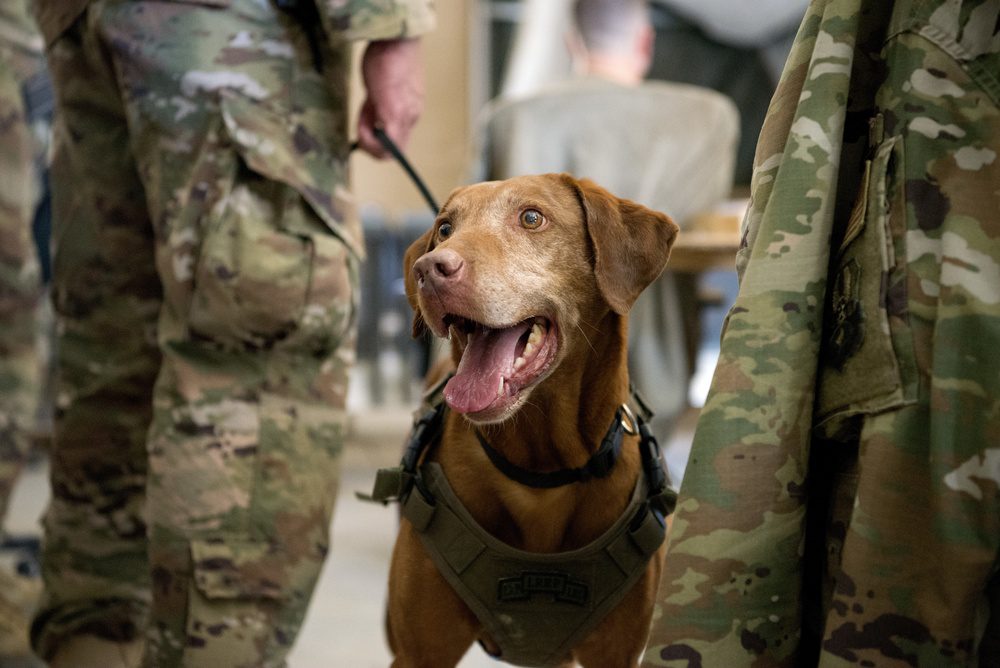Does My Dog Love Me?
THE AGE-OLD QUESTION
Dogs are one of the most popular pets worldwide–and for good reason. They are loyal, affectionate, smart and quirky. And while they can’t speak our language, they communicate their feelings in other ways. So, how do you know if your dog actually cares about you? And does your dog really love you, or do they just love that you give them food? Here’s what you need to know.
CAN DOGS FEEL LOVE?
Researchers have found that dogs share many emotional similarities with humans. One such similarity is the hormone oxytocin (OT). Oxytocin, also known as the “love hormone,” is associated with social bonding and positive feelings in many species. From the attachment between parents and offspring to the friendships formed outside of the family, oxytocin plays a significant role in our ability to feel love and connection with others.
Multiple studies have shown that when dogs and their owners have positive interactions–like cuddling or petting–an increase in oxytocin occurs in both parties. This suggests that dogs actually feel love for their human owners–just like we feel love for them in those moments. In fact, a study from 2017 found that free-ranging dogs preferred petting over food in repeated interactions. What this means is that your dog doesn’t only care about the food you give them. And they don’t just use you as a long-term meal ticket. They genuinely love your praise and company!

Dogs and their owners experience an increase in oxytocin when they have positive interactions.
THE BIOLOGY BEHIND IT
Dogs are inherently pack animals. This means that they are social creatures that thrive in groups and form strong bonds with the members around them. Wolves were biologically wired to care about and listen to their pack members because their survival depended on it. Over time, dogs have become more domesticated than their wild ancestors, but studies have shown that they remain social creatures with this need to connect.
What’s most fascinating is that dogs’ emotional connections are not limited to their own species. This is why you can see dogs befriend herds of sheep or cow on a farm, and this is why dogs have the capacity to care for humans. As their owners, we are often perceived as part of our dog’s pack, and this can lead to their having strong feelings of love for us. So in short, yes, our dogs actually care about us. We can thank their biology for that.

Dogs’ emotional connections are not limited to their own species. This dog, for example, befriended a sheep in Malana, India.
Research has also found that dogs prefer spending time with their owners over spending time with other dogs. Through a series of experiments in which dogs were given a choice between interacting with their owner, interacting with another dog, or being alone, the majority of the dogs chose to interact with their owners. This indicates a strong attachment to their human companions.
In another study, a variety of smells were presented to dogs, and they responded more favorably to the human odors than to the scent of canine companions. While this is probably because domestic dogs have been selectively bred to show bias towards humans over other dogs, you can still pat yourself on your back. Your dog prefers you.
SIGNS YOUR DOG LOVES YOU
- They want to sleep near you. Dogs, by nature, sleep in a pack next to each other. When your dog snuggles beside you or wants to sleep in your room, it’s a sign that they trust you and feel safe.
- They gaze into your eyes. As romantic as it sounds, holding eye contact is a sign that your dog loves and trusts you.
- They wag their tail when they see you. Dogs use their tail as a tool for communication, and when it’s wagging, it indicates they are happy!
- They roll on their back and show their belly. This is how your dog lets you know that they trust you or even regard you as their superior. It’s meant to be a passive position.
- They greet you at the door. It may seem obvious, but the alternative to greeting you at the door is their retreating from the door. And that can be a sign that they are afraid or indifferent to you.
- They steal your clothes. Dogs navigate the world using scent, and when they steal your clothes, it means they just want to be closer to your scent. We promise, it’s meant to be a flattering gesture.
- They follow you around. Dogs are pack animals, and they follow other dogs (or humans) that make them feel safe. If they follow you, or check on you every once in a while, it means they trust you and love you.
- They lick you. This is a natural instinct for dogs, and it serves a lot of purposes. Dogs are licked by their mothers as puppies for cleaning, nurturing and connection. When your dog licks you, it typically indicates affection.
THE CAVEAT
While these studies show general patterns in dogs, it’s important to note that dogs are individual creatures and each can show affection differently. Some dogs may be more reserved and prefer to show affection through quiet companionship, while others may be more exuberant and show their love through playful antics. So, don’t sweat it if your dog doesn’t lick your face every time you walk through the door. Remember that every dog is unique. And if you’re providing them with love and companionship, just know they are undoubtedly reciprocating that in their own way.
Even though we may never be able to know for sure what our furry friends are thinking, there is scientific evidence that suggests your dog loves you. A lot. So, go ahead… give them an extra scratch behind their ear today. And if you’re a Veteran looking for companionship, check out Charlie Mike’s Battle Buddies program. We rescue dogs, provide them with medical care, and train them to be companion dogs for Veterans. Now that you know that dogs really do give their owners unconditional love, what are you waiting for? Adopt your new best friend today!





